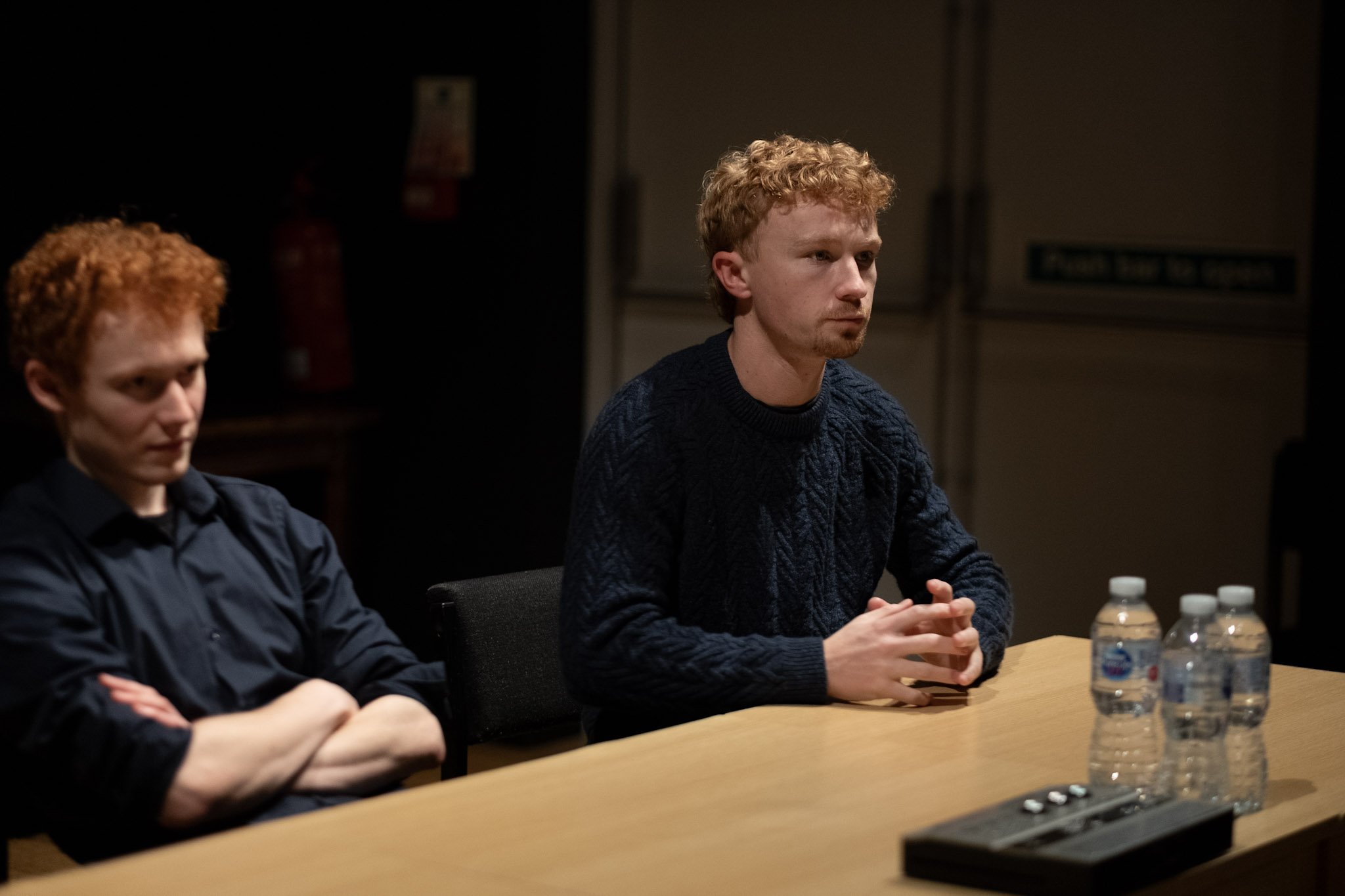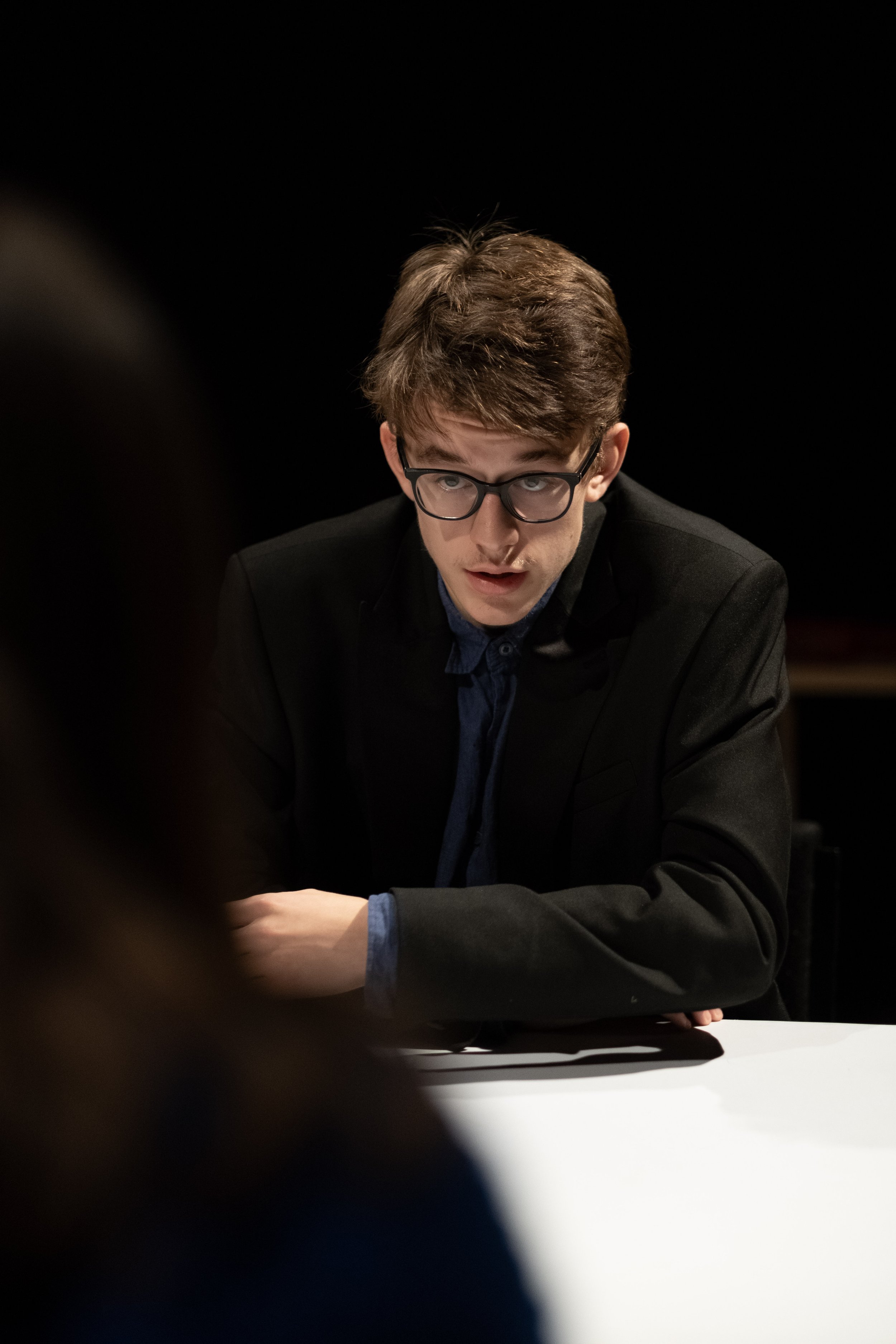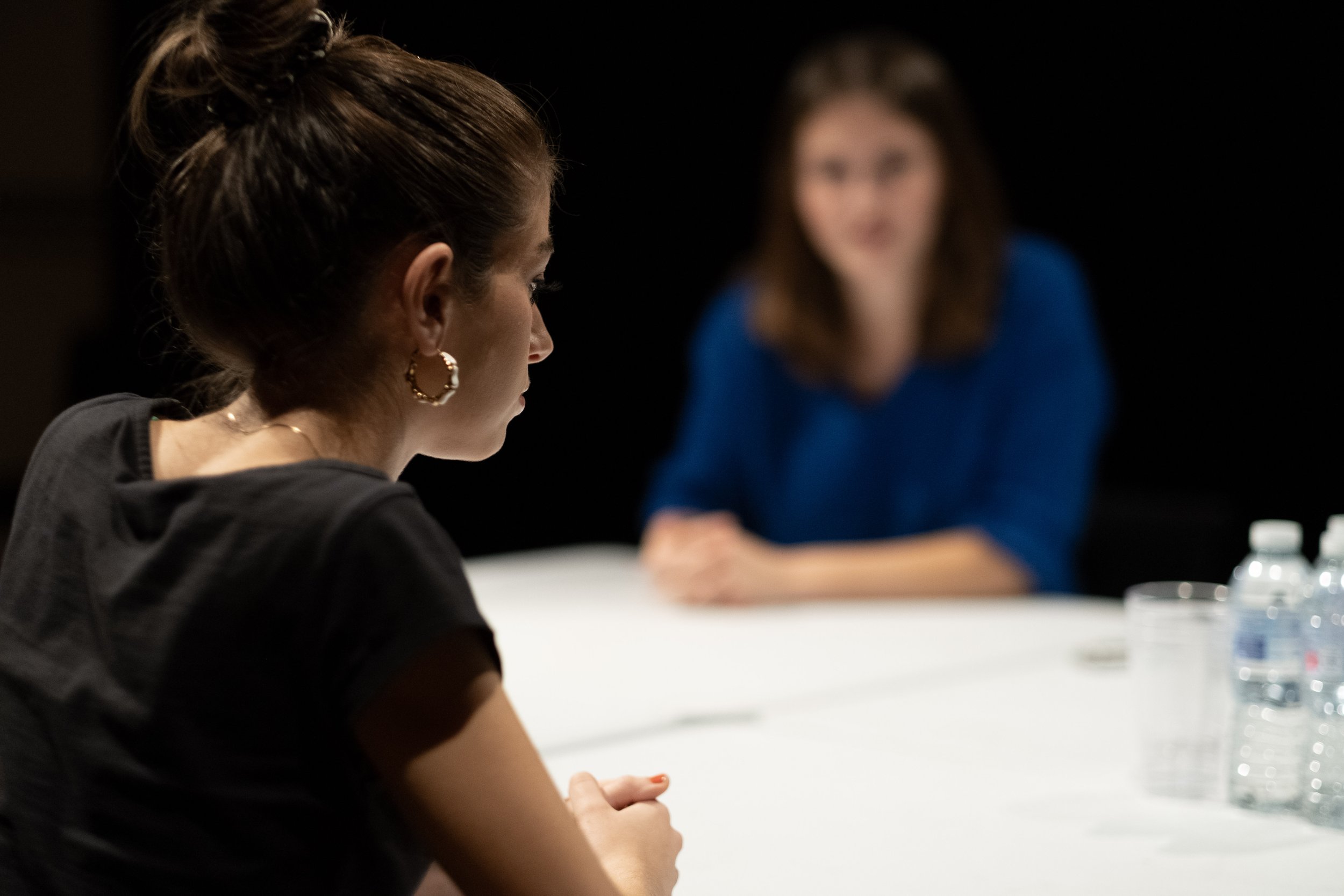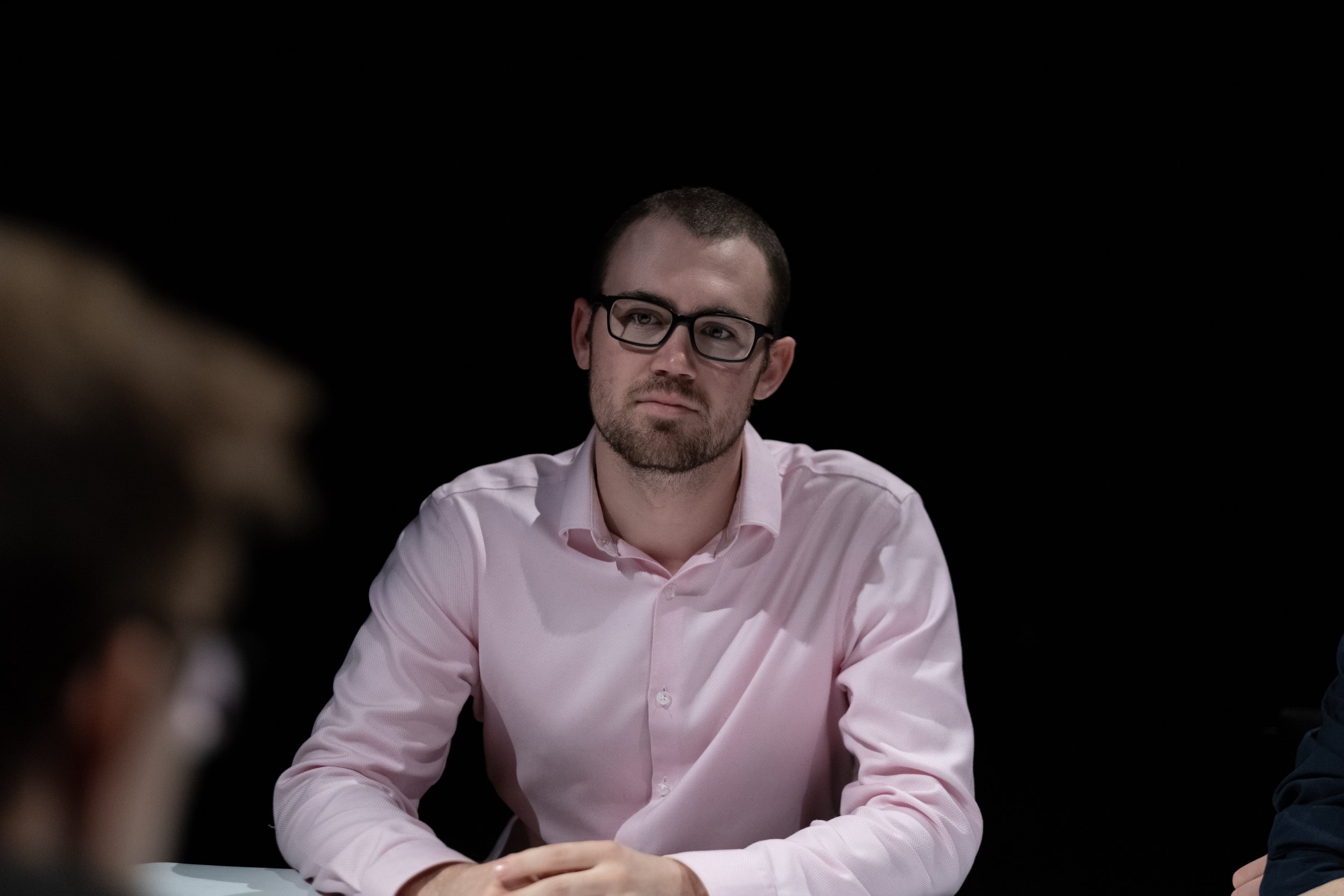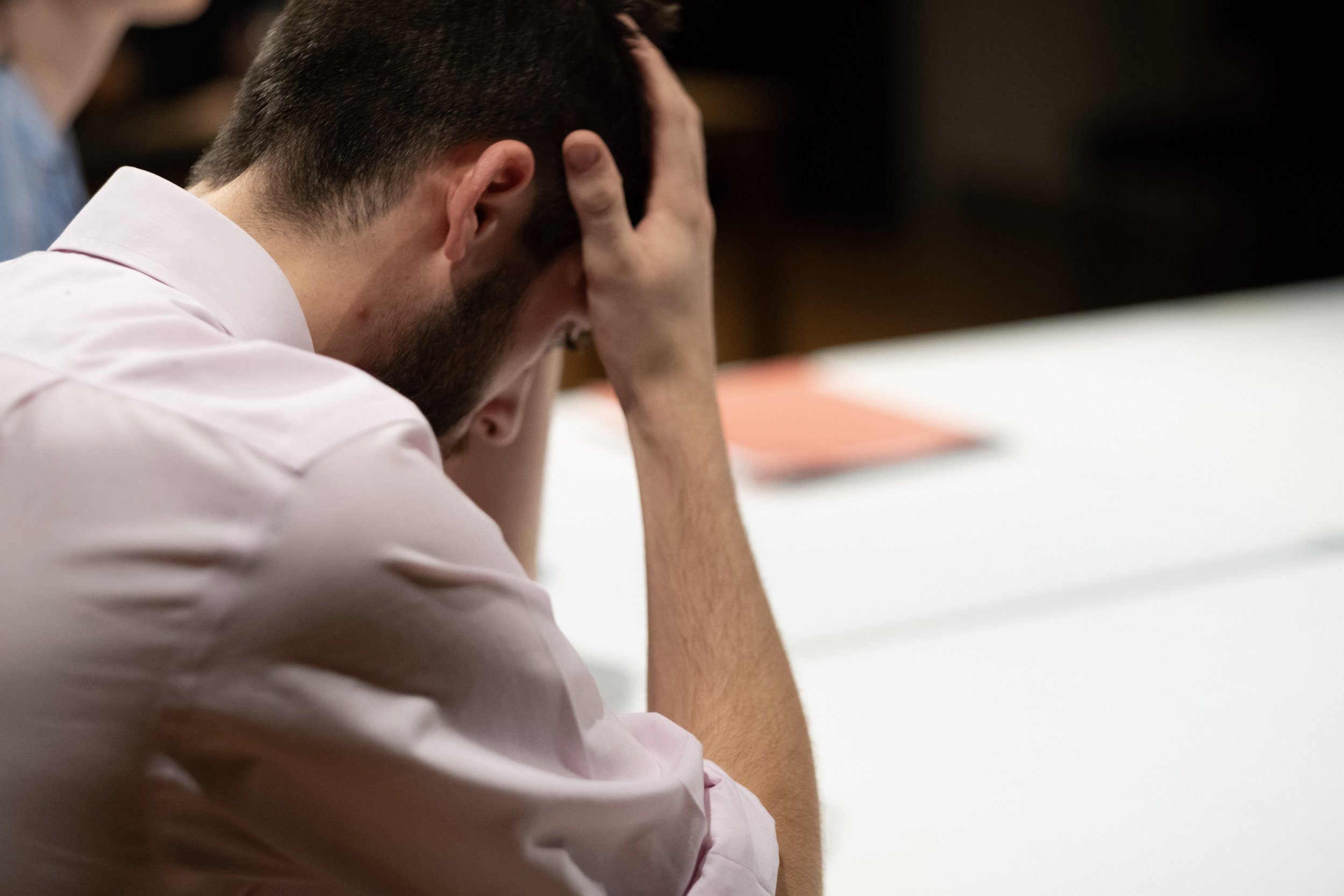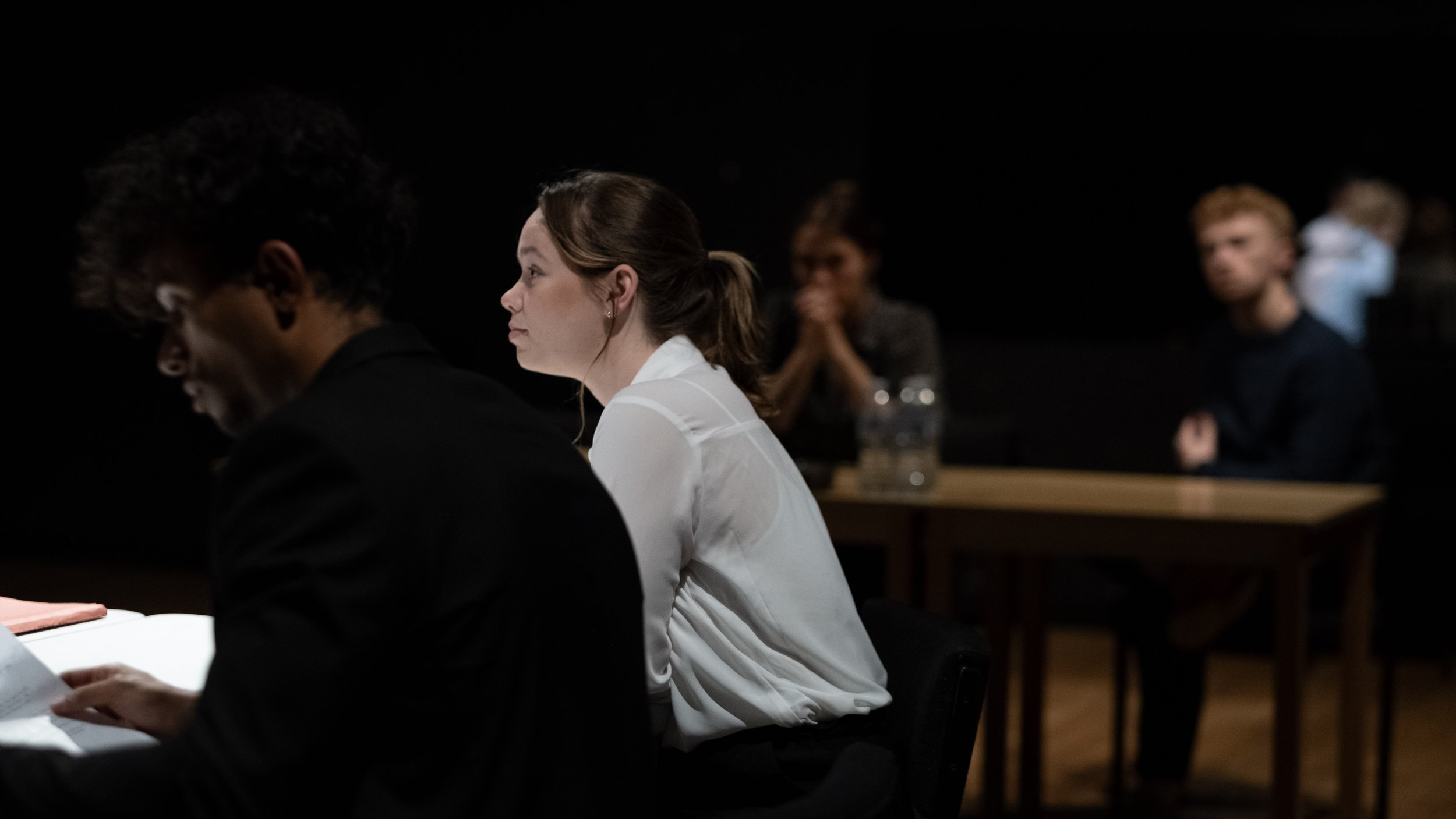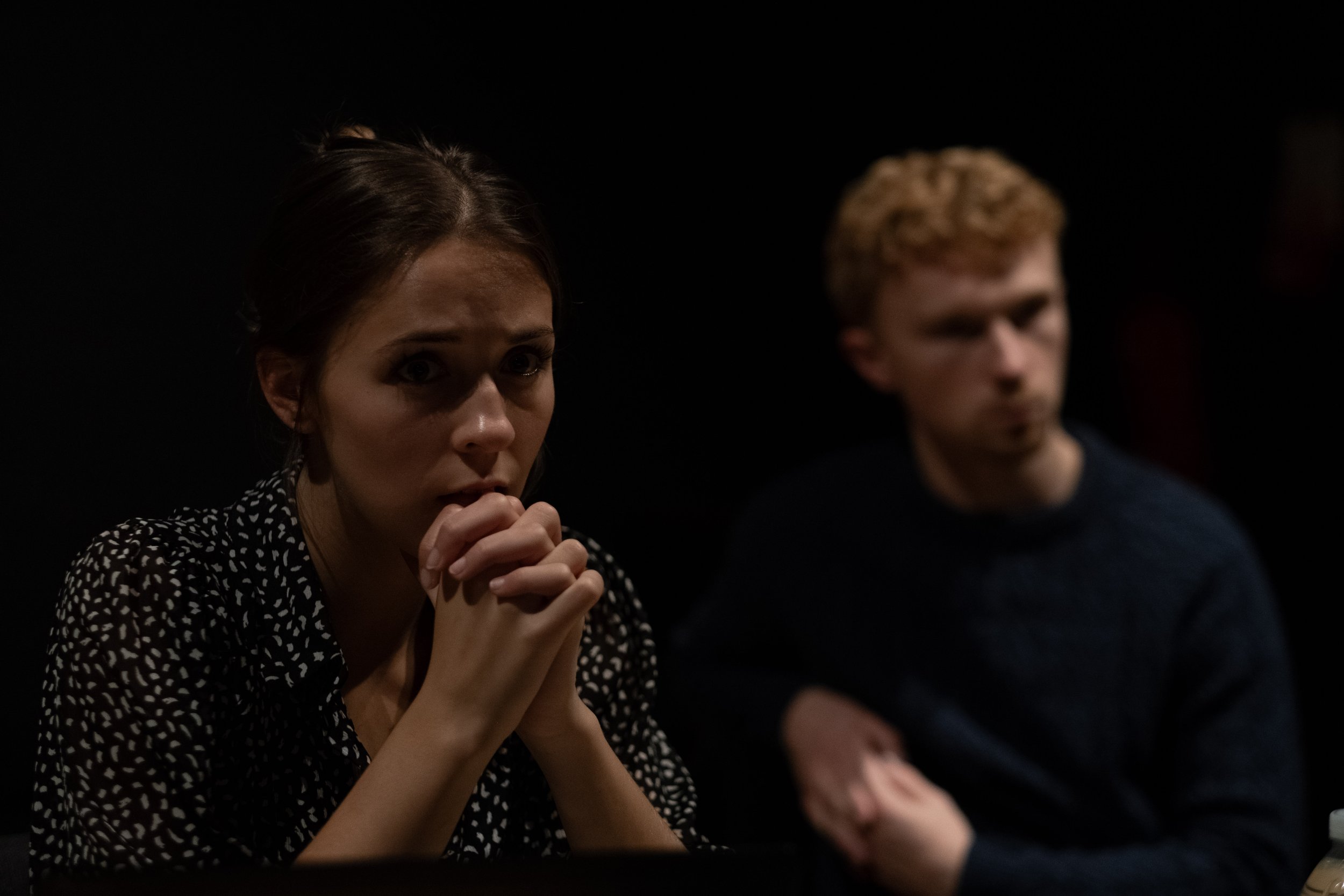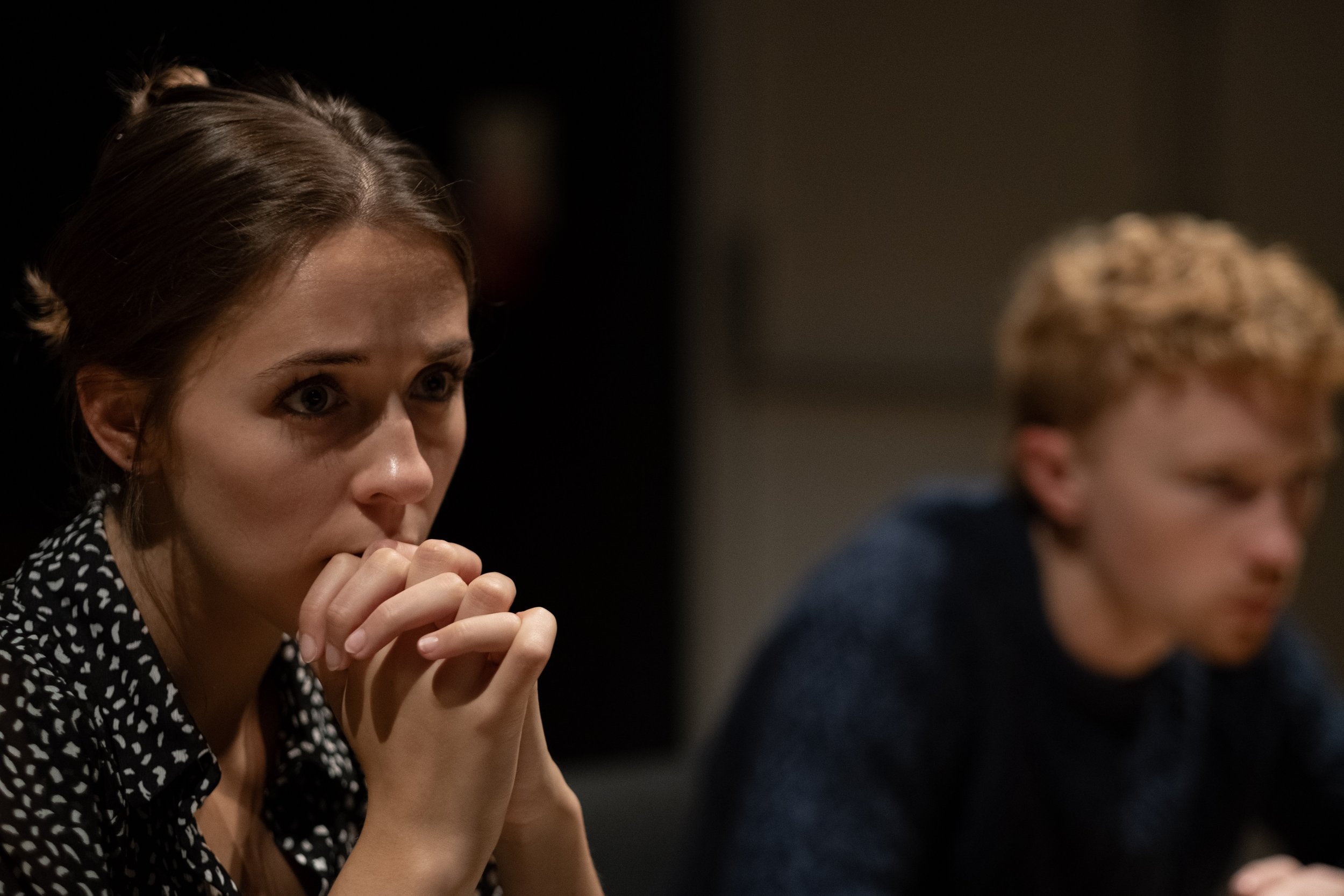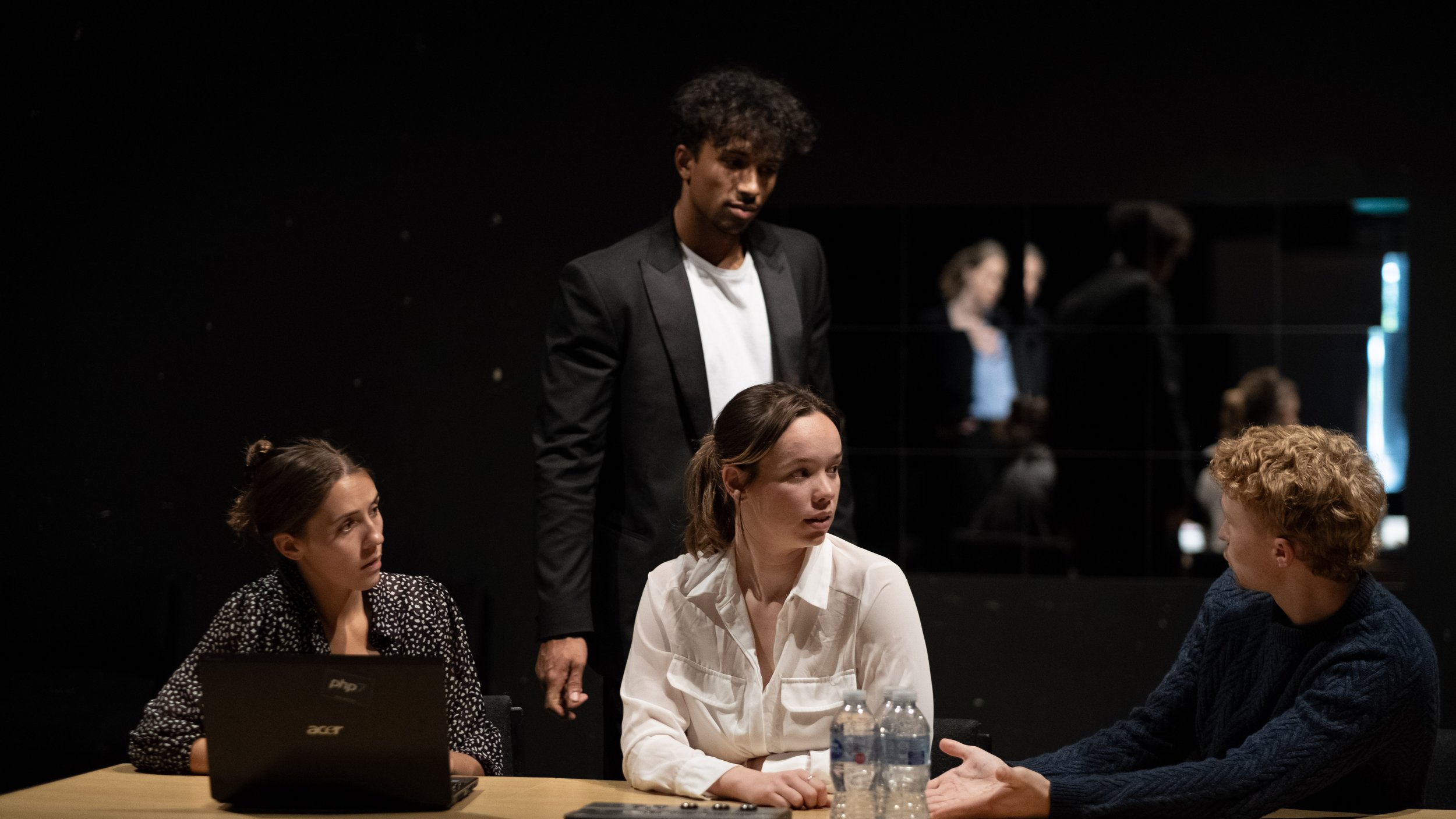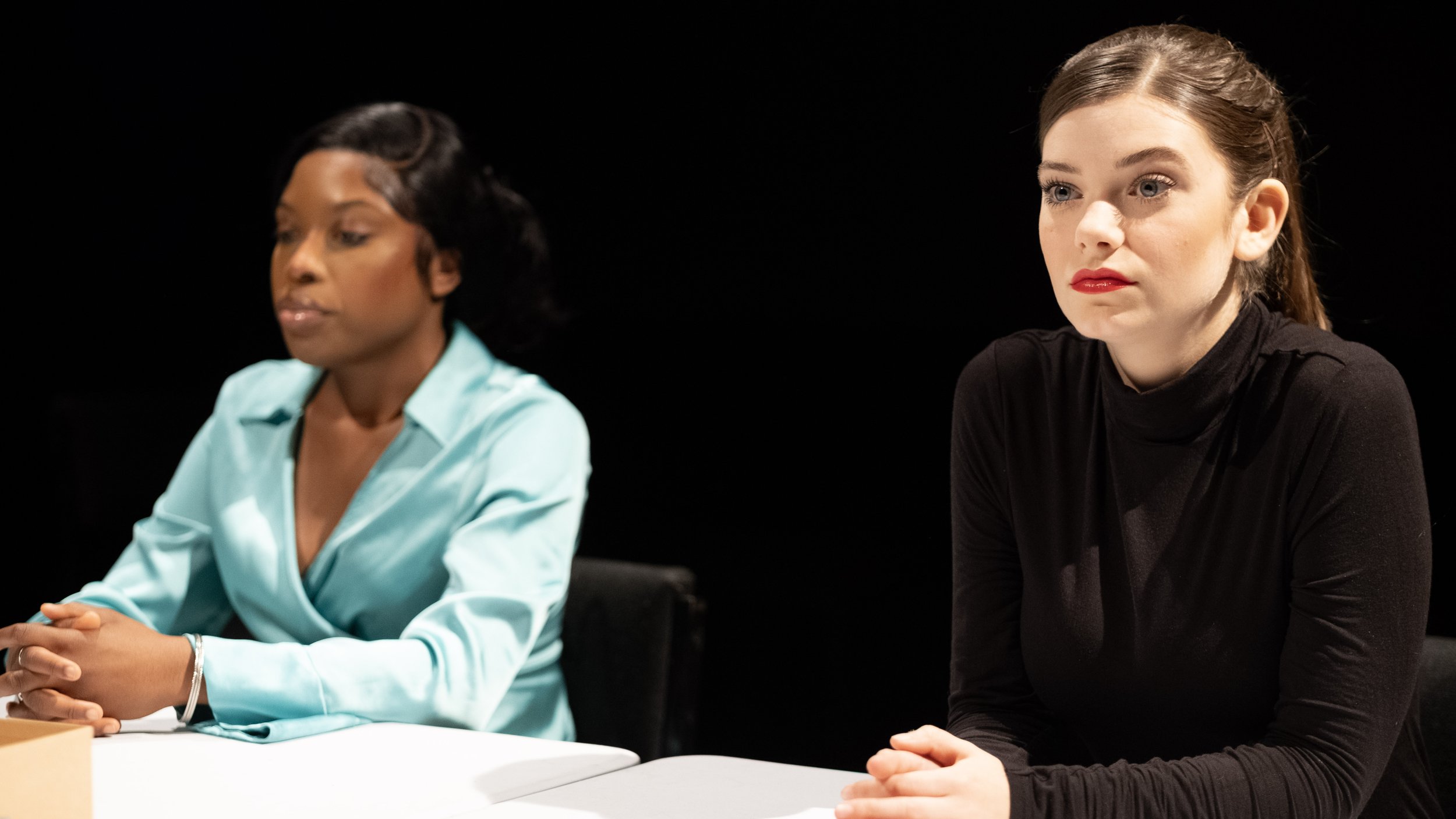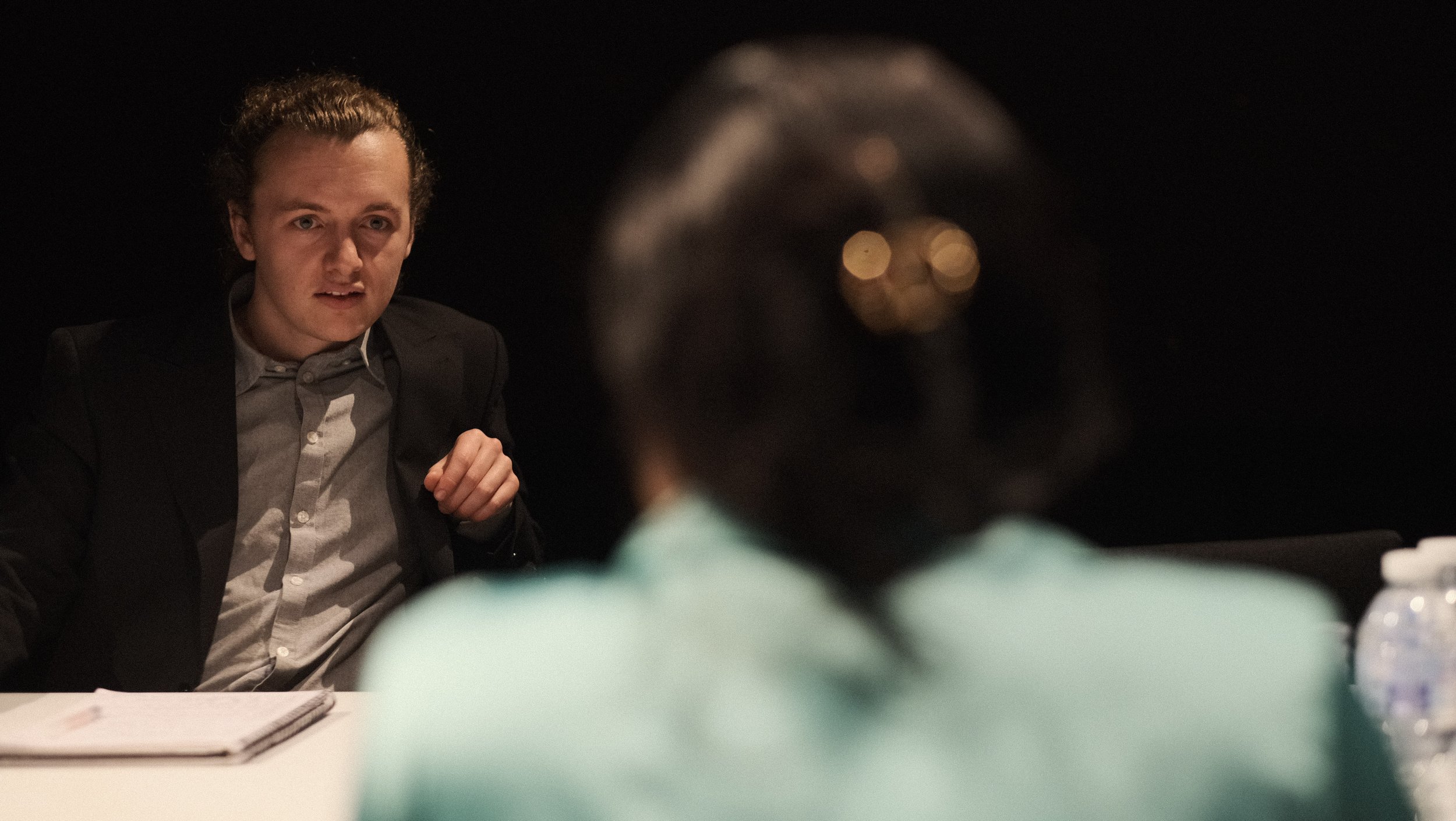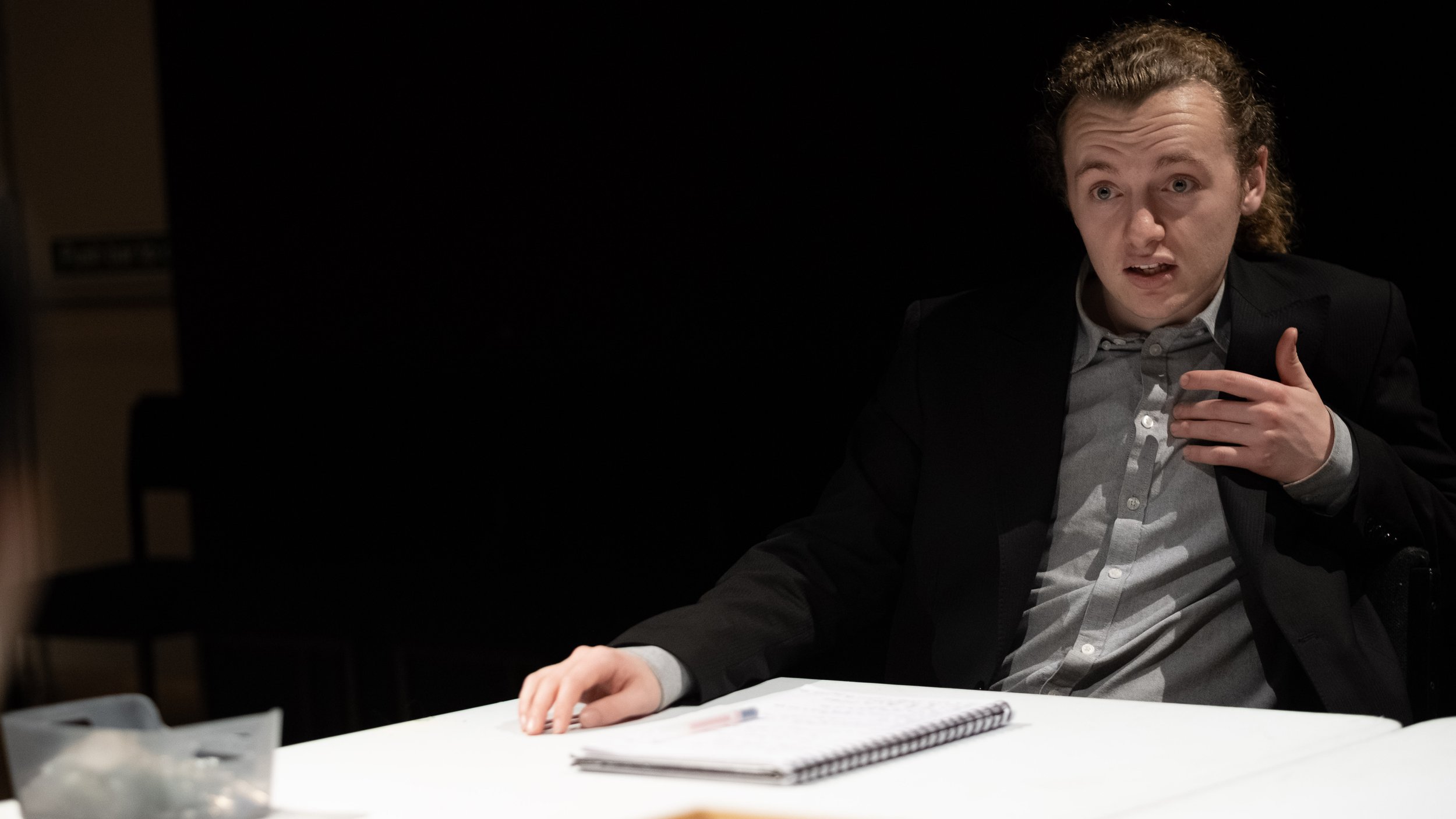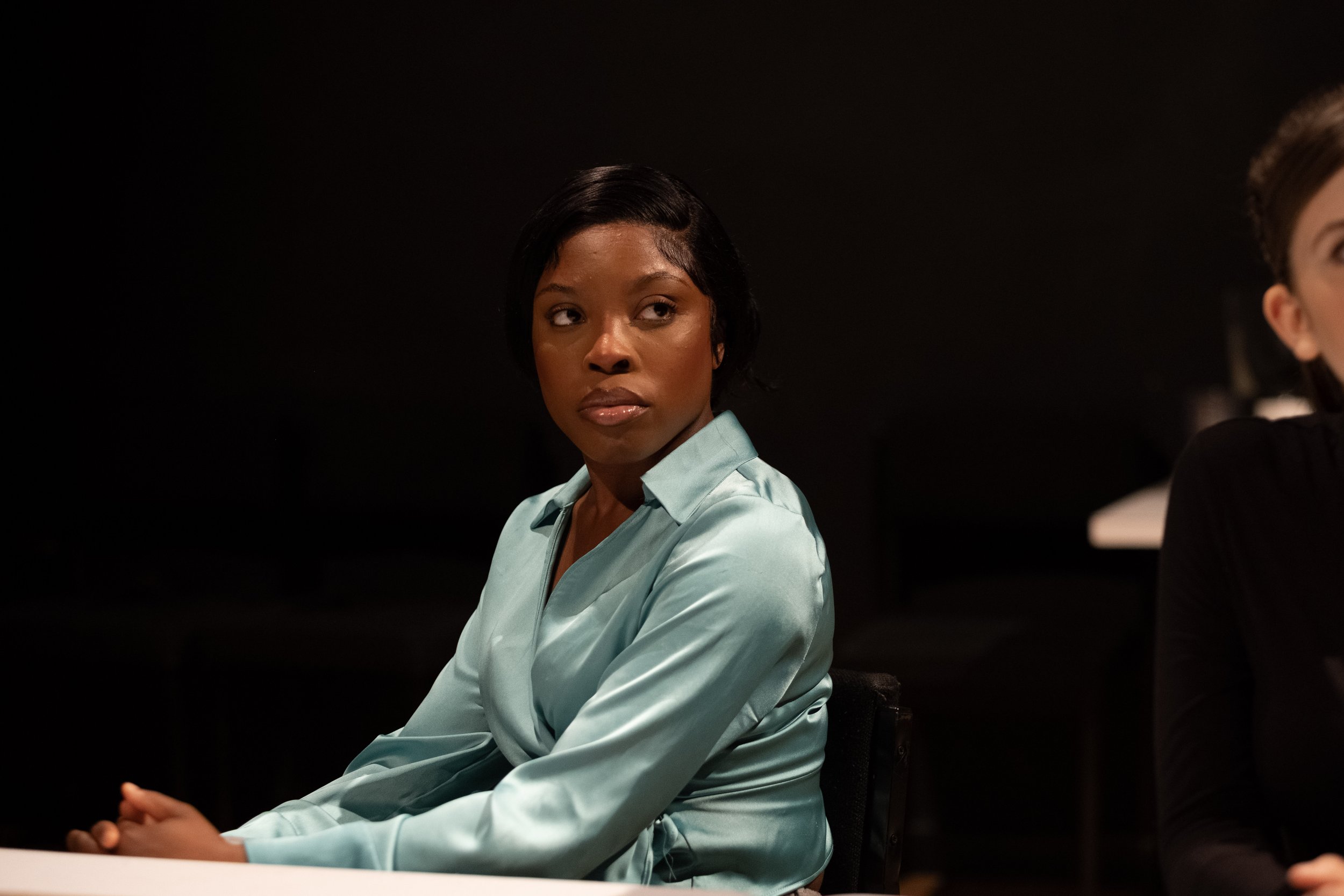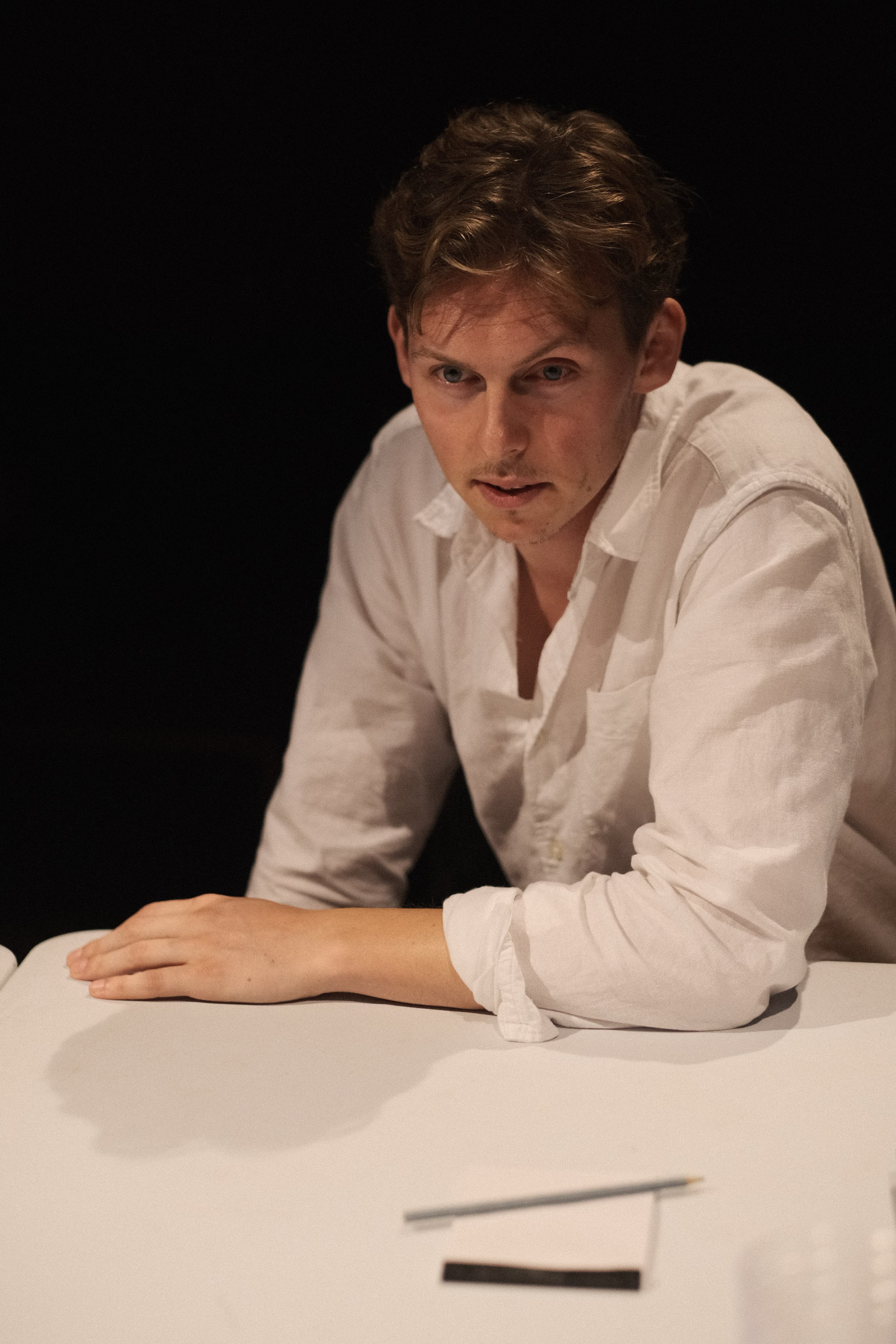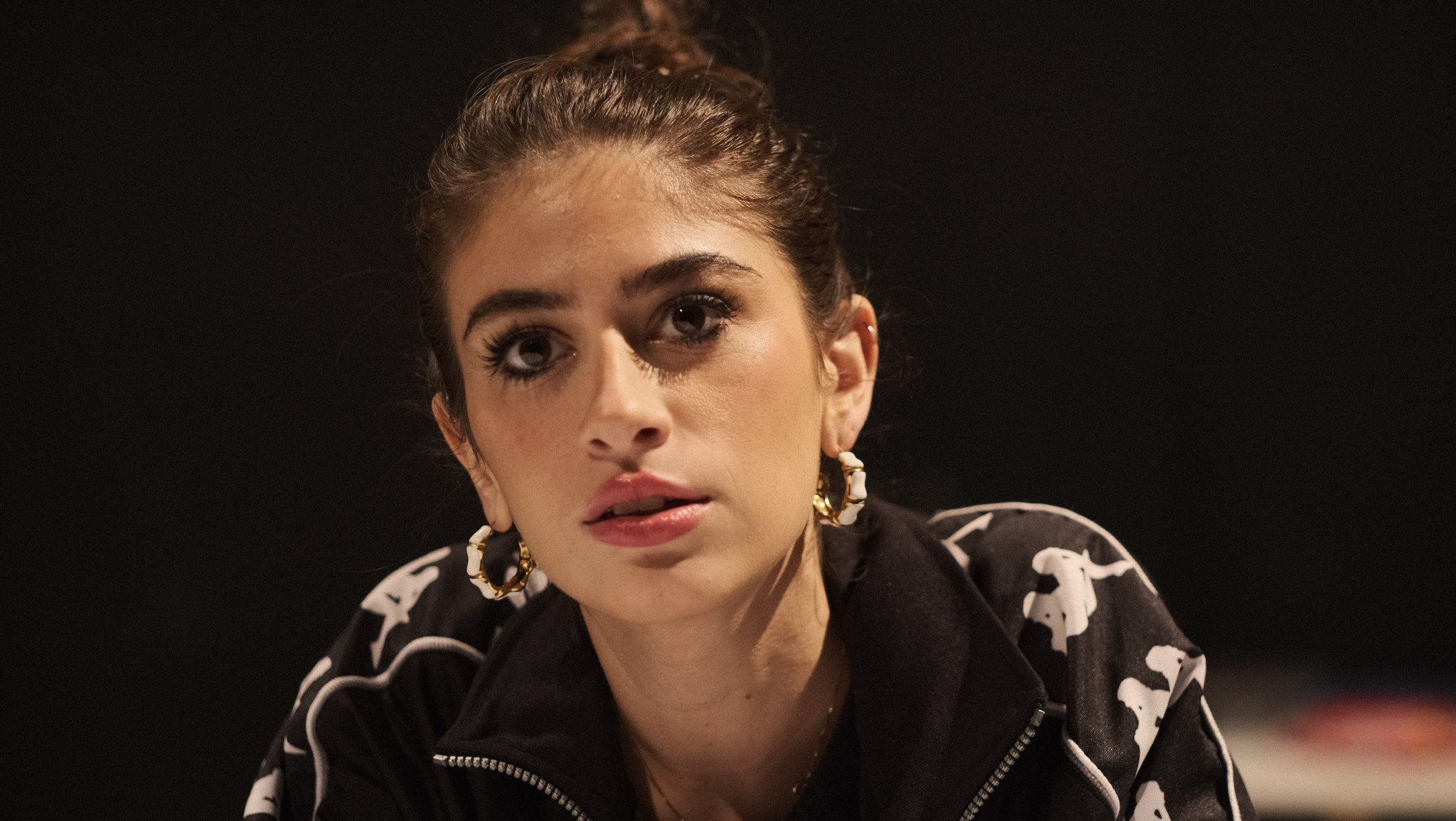Criminal, 2023
Oxford School of Drama
Dir. Kristine Landon-Smith
It was my pleasure to return to Oxford School of Drama and work on some more episodes of the Netflix series Criminal. This year we did two from the UK series and one from the French. The episodes provided the students with wonderful challenges and they all rose to the occasion.
Student Reflection 1
I love listening, really listening, as we have been doing in this body of work. It sounds so obvious and fundamental.
I’ve realised that when you really listen, the potential that listening presents to you and your scene partner(s) is great. This listening, real listening means hearing things for the first time every time and
you get a sense of the music of the piece that you as a company create. You begin trusting that the flow of the piece is in you, that you are better than just the text and you begin facilitating the space for that work to just pour out of you as opposed to forcing the connection.
This is all also very much down to the complicité we have been asked to nurture. By building complicité you acknowledge the electricity in the space, there’s trust in the room and you feel a connectedness and the listening becomes a natural product of that. As a result, the silences are charged, and you feel in play and at ease. It’s fun!
Complicité is energetic and it evolves and changes with you which only further highlights the importance of the actor’s readiness . Readiness in mindset, body, emotionally, mentally and any other readiness you can muster. For example, you want to be asking yourself, is the energy pulsing through my body at the right percentage level when I’m sat like this? Or this? Complicité and openness go hand in hand, they are the best of friends.
Student Reflect 2
This process was quite groundbreaking for me as an actor. It reignited me with the spark that made me start all this in the first place. The ‘pleasure to play’ that we can loose so easily by constantly prioritising thinking about the work.
Kristine’s way of working is so radically simple. You strip away the unnecessary and the pretend. You listen with openness and you play through yourself. I have actually never felt so free as an actor as I did in the performances of Criminal. There were moments where Kristine really made me feel that anything could happen, if I simply let the text come through my whole self.
In training It can often feel that letting go into the work, listening and being organic is the final ingredient after lots of ‘preparation,’ Kristine makes it the only Ingredient.
Student Reflection 3
Kristine’s approach of putting the actor as the primary focus in the creative process was not only new to me, but a breath of fresh air and illuminating to say the least. Working in this way, let me find my own confidence in physically being on stage, trust in my own creative instincts, and rediscover the pleasure to play.
In a time where the wider industrial context has been acutely focussed on nostalgia, Kristine’s ethos encourages artistic change for the better: inclusivity and diversity in a true sense, as opposed to a tokenistic or jingoistic fashion that has gripped the industry. Working with Kristine has made me endlessly excited about the future of the arts and the possibility that we could be on the brink of a new epoch in acting and actor training beyond the hegemony of the Stanislavskian method of 20th Century.
Student Reflection 4
Working with Kristine has taught me to back myself fully and understand that adding things which don’t necessarily suit the narrative is a huge sign that I’m not really backing my creative self .I often felt that I had to create something,but by the end of the process I was able to just be and that’s where I could play with the actor in front of me and something would come up from that .Active listening creates chances for something different to happen within the scene There was no stress as I wasn’t trying to manufacture something before coming into the room.Loved this process and I’ve found myself along the way which I’m grateful for!
Student Reflection 5
Kristine’s way of working has inspired me- it’s incredibly liberating and freeing to work with a director who encourages such heightened states of play and complicite- the focus being on really actively listening and responding. This allowed me to be in a flow state throughout the rehearsal process and runs of the show, creating organic responses that were effortless without self doubt or self criticism. I think this has been hugely beneficial for me as in the past I would agonise over details and “prep” where through this way of working I discovered the most important prep is being open and ready to play. I have also loved Kristine’s focus on using the self and not “creating” a character- everything is already within us- why wouldn't we use what's at our disposal?! Using improvisations as a springboard for the work keeps the piece alive and fresh, we never knew what was going to happen and that created such an exciting atmosphere in rehearsal.
Student Reflection 6
One of the most profound revelations I had requires some context to understand: I am a mixed race actor. Black, white, hispanic, eastern European - the works. But despite this, my natural disposition and relationship to the world around me - is mostly black. My default attitude and trusted inner circle - mostly black. And my skin/general appearance - mostly black. As many others before me have surely done, I have questioned my place amongst the predominantly white-dominated establishments which teach this beautiful craft called acting. “How do I present myself? How do I speak? Which “side” of myself do I tap into for each character, each story, each impulse, etc.”
There was always an air of uncertainty in my work. A kind of lack of confidence. Could my tutors/directors appreciate my acting if it felt unfamiliar to their own experiential lens? Would they understand what I was doing if I didn’t speak the way they expected someone to speak?
When Kristine was presented with the opportunity to answer my questions, she looked at me and said; “Do it the way you would do it. You’re mostly black. Why would you do it any other way?” This was actually the first time I had ever been given vocal, explicit permission to be black. ….. it seemed to unlock a freedom in me that opened the floodgates. For the first time, my whole uncensored and complex personal experience was given room to present itself…. I now had the freedom to be as black as I wished! And in my wisdom, should I choose to draw upon my other racial backgrounds, I was free, and expected, to do so.
Student Reflect 7
Kristine welcomes the idea of coming into rehearsal with just your open self and that was enough for her.
I have also been thinking a lot about Kristine talking about needing to bring your whole self. Since moving to England from Wales and working in English I have been leaving a part of myself behind in an attempt to fit in or to be perceived in a certain way. I felt a massive dip in my confidence when I started training and I think I’m realising now that it was all because I was playing a part and I was obviously unsure of who I was trying to be. Kristine is so right in saying that if you don’t bring your whole self then how can you expect yourself to be fully free to play with everything you’ve got within you. I’ve always been confident being just me back at home so why does that have to change when I’m here .
